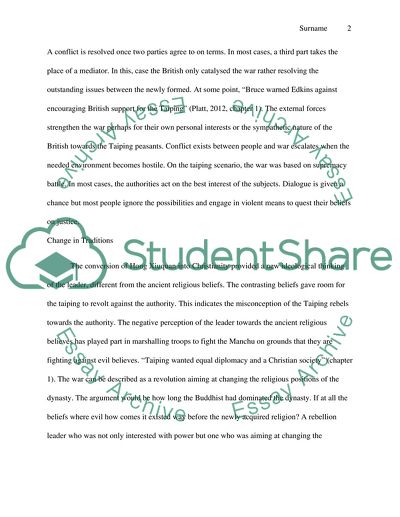Cite this document
(“History Of The Taiping Civil War Book Report/Review”, n.d.)
History Of The Taiping Civil War Book Report/Review. Retrieved from https://studentshare.org/history/1847575-review-book
History Of The Taiping Civil War Book Report/Review. Retrieved from https://studentshare.org/history/1847575-review-book
(History Of The Taiping Civil War Book Report/Review)
History Of The Taiping Civil War Book Report/Review. https://studentshare.org/history/1847575-review-book.
History Of The Taiping Civil War Book Report/Review. https://studentshare.org/history/1847575-review-book.
“History Of The Taiping Civil War Book Report/Review”, n.d. https://studentshare.org/history/1847575-review-book.


